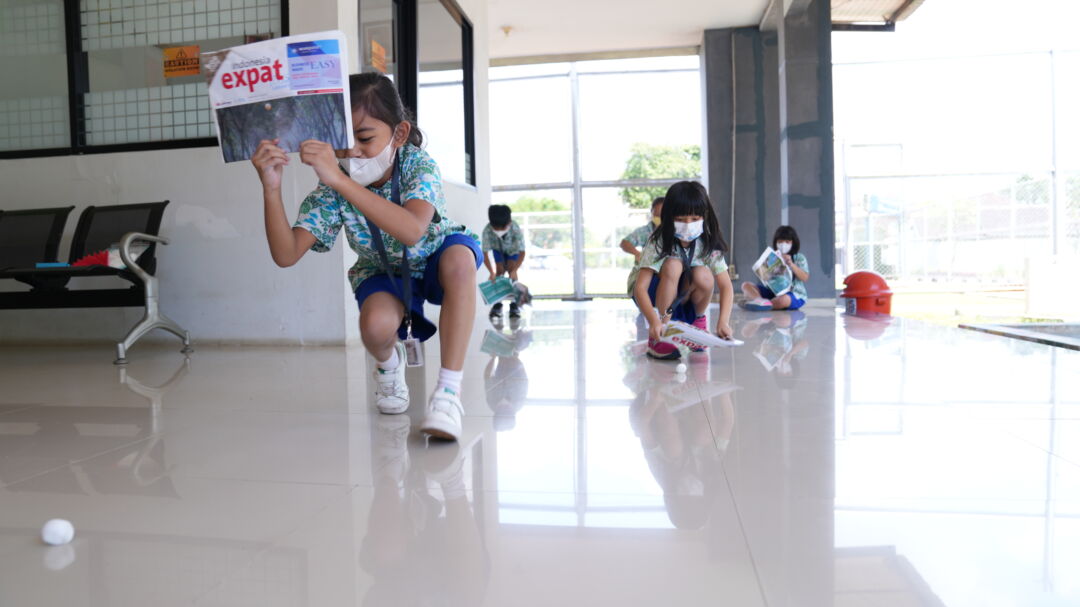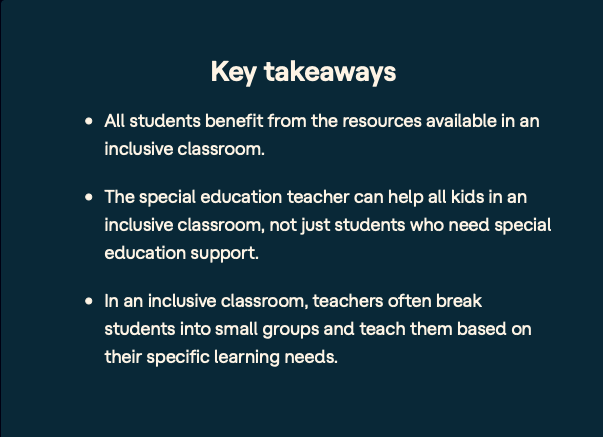
What is Inclusive Education?
There are an estimated 240 million children with disabilities worldwide. Like all children, children with disabilities have ambitions and dreams for their futures. Like all children, they need quality education to develop their skills and realize their full potential.
Inclusive education is when all students, regardless of any challenges they may have, are placed in age-appropriate general education classes that are in their own neighborhood schools to receive high-quality instruction, interventions, and supports that enable them to meet success in the core curriculum (Bui, Quirk, Almazan, & Valenti, 2010; Alquraini & Gut, 2012).
Inclusive education is the most effective way to give all children a fair chance to go to school, learn and develop the skills they need to thrive.
Inclusive education means all children are in the same classrooms and schools. It means real learning opportunities for groups who have traditionally been excluded – not only children with disabilities but speakers of minority languages too.
Inclusive education systems value the unique contributions students of all backgrounds bring to the classroom and allow diverse groups to grow side by side, to the benefit of all.
Inclusive Education For Children With Disabilities
Inclusive education programs provide educational services for all students including those with special needs. These programs serve all children in the regular classroom on a full-time basis.
This program allows the student to remain in the regular education classroom setting at all times. This program is intended to meet the objectives of IDEA by educating students in the regular classroom while still providing for their unique needs.
Baca Juga: learning disability
Studies show that inclusion is beneficial for all students — not just for those who get special education services. In fact, research shows that inclusive education has positive short-term and long-term effects on all students.
Kids with special education needs who are in inclusive classes are absent less often. They develop stronger skills in reading and math. They’re also more likely to have jobs and pursue education after high school.

The same research shows that their peers benefit, too. They’re more comfortable with and more tolerant of differences. They also have increased positive self-esteem and diverse, caring friendships.
Bergabunglah dengan Pengalaman Kami!
Menjadi bagian dari JMS bukan hanya untuk program belajar yang menyenangkan,
tetapi juga untuk mengembangkan masa depan mereka.


Berbagai Fasilitas Menarik di Sekolah Internasional di Indonesia says:
Inilah Berbagai Kurikulum International School di Indonesia says:
Rekomendasi Pekerjaan Freelancer untuk Mahasiswa - Rakamin Academy says:
Tips Memilih Sekolah Internasional Terbaik di Indonesia says:
Keunggulan Jakarta Multicultural School Sebagai Private School Terbaik di Indonesia says:
Anak Malas Belajar? Berikut Faktor Penyebab yang Harus Orangtua Ketahui - Seserina says:
Mengapa Sekolah Menengah Atas Internasional di Jakarta Menjadi Pilihan Terbaik untuk Masa Depan? - Hellodkids.info says:
Pahami Kurikulum Pada JMS Best International High School Jakarta says:
Alasan JMS Sebagai Best International High School di Jakarta says:
Inilah Fasilitas JMS International High School Terbaik Jakarta says: